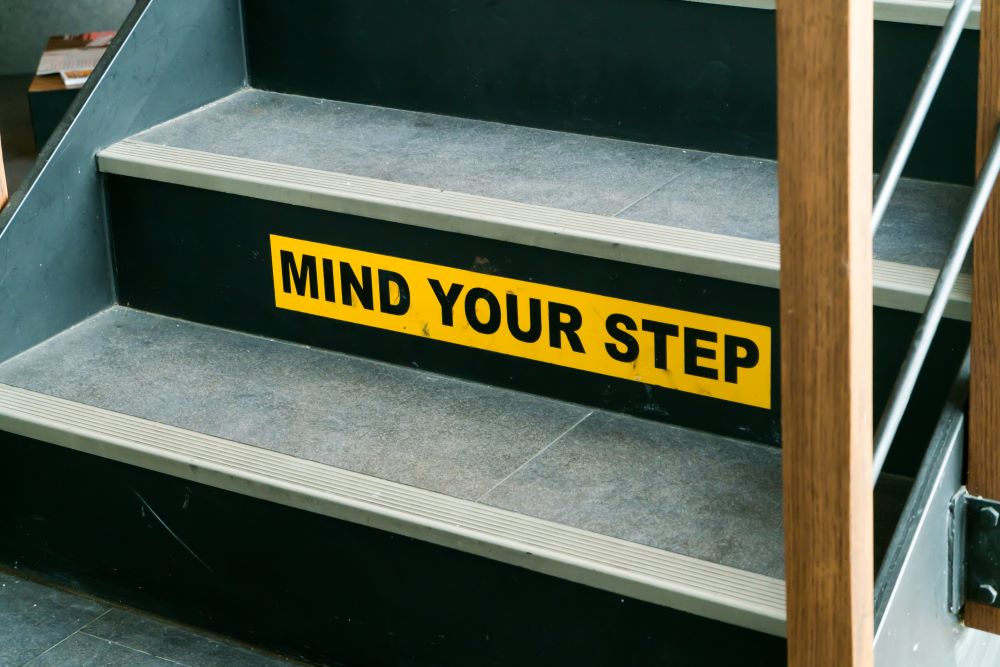Slip and fall accidents are surprisingly common, leading to approximately one million hospital visits yearly, according to the National Floor Safety Institute (NFSI). In fact, data from the NFSI reveals that more than one out of every ten fall-related accidents is a slip and fall.
However, despite how frequently these accidents happen, it’s not always easy to know what to do after a slip and fall. Fortunately, a slip and fall lawyer can accurately advise you on your next steps and handle your case if you need to file a compensation claim. Here’s what you need to know about slip and fall laws in Florida.
Florida Slip and Fall Accidents: What Is the Law?
Florida law recognizes that those who own any sort of real property have specific legal duties to others. What duties a property owner owes you in your situation depends primarily on whether you were invited onto the property by the property’s owner and, if so, for what purpose.
Not Invited by the Property Owner
You are considered to be a trespasser if you enter someone else’s property without their permission. Being a trespasser in this context has nothing to do with criminal intent. It also does not depend on whether the property owner put out signs warning against trespassing or fenced off their yard.
Property owners are not obligated to warn a trespasser of any hazards on the property. However, property owners in Florida are also legally obligated not to harm a trespasser deliberately. For instance, a property owner cannot set out a spring gun or a booby trap to harm someone they know is coming onto their property without permission.
Allowed to Be on the Property
If the property owner permits you to come onto their property for your benefit or pleasure, you are considered a licensee.
You would be a licensee if, for example, your neighbor allowed you to walk over their yard instead of using the sidewalk. Similarly, you are a licensee if your neighbor permits you to retrieve errant balls and toys that went into the neighbor’s yard without first getting their permission.
If you are a licensee on someone’s property, then the property owner should tell you of any known dangers or hazards that are not obvious.
For instance, if the property owner has hired a company to repair the property’s front steps because they are crumbling, the property owner should put a warning sign in front of the stairs or place caution tape around them to keep you and other licensees from using them.
Invited Onto the Property
Additionally, if a property owner invites you onto their property to do something that benefits the property owner, you are considered an invitee.
Customers who visit a business to shop during the business’s hours of operation are invitees. You are also an invitee if you go onto your neighbor’s property because you have agreed to watch your neighbor’s children for the evening.
Property owners owe invitees the greatest duty of care. An owner must make reasonable inspections of their property and warn invitees of any obvious or hidden dangers that might be present.
For this reason, you will see retail stores place signs warning of a wet floor by obvious liquid spills while also roping off certain aisles if there is a non-obvious danger that something might unexpectedly fall from a shelf.
From Injury to Compensation After a Slip and Fall Accident
Following an accident, your slip and fall lawyer will investigate your situation to determine whether you were a trespasser, licensee, or invitee. Your attorney can then examine how the property owner failed to satisfy their legal obligations. This information is essential to filing a claim for compensation.
Depending on the type of property where the accident happened, your slip and fall lawyer may file a claim against the property owner’s insurance company. The claim will go to the homeowner’s policy if the property is a residence. However, a claim against the business’s liability policy would be appropriate if the property is a business.
If your slip and fall lawyer determines no insurance policy will fully compensate you, or if no insurance policy is available, then a lawsuit may be filed. Such a lawsuit seeks to hold the property owner directly responsible for your damages.
Schrier Law Group Can Protect Your Rights
At Schrier Law Group, we have fought for the rights of injury victims for over 36 years. If you’ve been injured in a slip and fall accident in Florida, call an experienced slip and fall lawyer from Schrier Law Group for a free consultation today.






